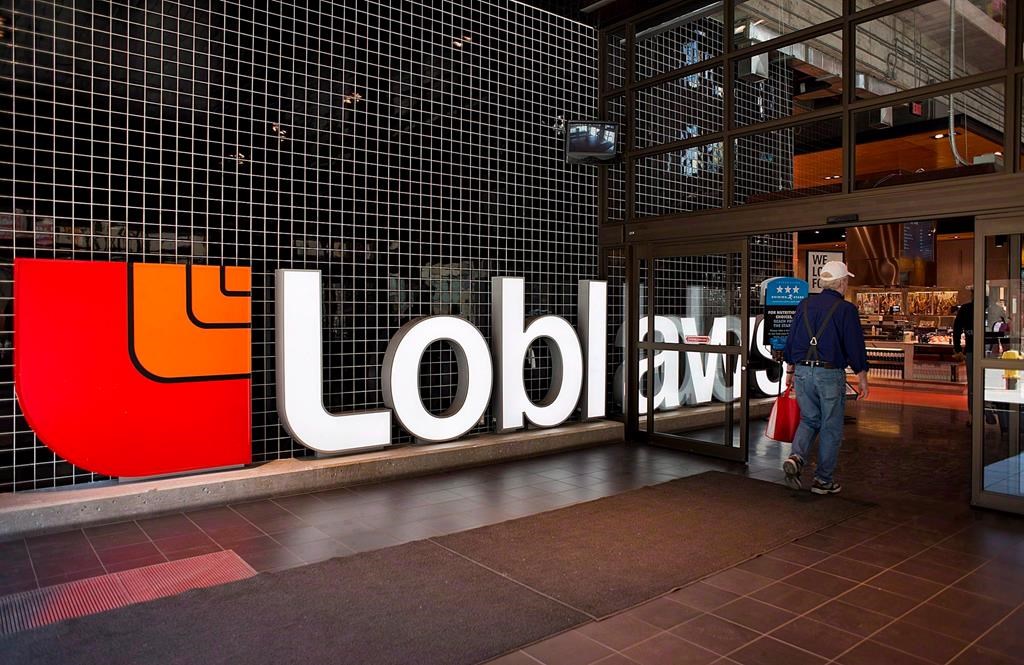Questions raised about Loblaw’s price freeze

Posted October 18, 2022 9:34 am.
Last Updated October 18, 2022 2:23 pm.
It was touted as a move to help Canadians save money at a time when many are struggling to cope with inflation, but questions are now being raised about the country’s largest grocer deciding to freeze prices on its house brand.
On Monday, Loblaw announced it was freezing prices on more than 1,500 of its No Name brand items until Jan. 31, 2023. Some of the items include apples, coffee pods, bagels, pasta, butter, and toilet paper. A price freeze will stop prices from increasing, but it will also stop prices of goods from decreasing.
BREAKING: Metro’s response to Loblaw’s price freeze:
“It is an industry practice to have a price freeze from Nov. 1 to Feb. 5 for all private labelled and national branded grocery products and this will be the case in all of METRO banners.”
This is what collusion looks like…
— The Food Professor (@FoodProfessor) October 17, 2022
However, Metro, which is the third largest grocer in the country behind Loblaw and Sobey’s, sent a statement to Bloomberg saying it’s normal to do this.
“It is an industry practice to have a price freeze from November 1 to February 5 for all private label and national brand grocery products and this will be the case in all of METRO banners (in Ontario, Metro, Food Basics Ltd., Marché Adonis).”
Related Articles:
-
Loblaw freezes prices of all No Name products until end of January
-
Turkey turmoil: rising food prices blamed for an expensive Thanksgiving
-
66% of Canadian poll respondents report being impacted by inflation
Loblaw tells CityNews, that’s not true.
“This is not something we’ve ever done before. Freezing the retail price of more than 1,500 essentials — produce, eggs, bread, flour — for the next three months is unprecedented in Canada. These products are already priced at 25 per cent less than comparable brands, and they are guaranteed not to increase,” says the company in an emailed statement.
The No Name brand is sold in more than 2,400 stores across the country, including Loblaws, Real Canadian Superstore, No Frills, T&T, Atlantic Superstore, and Shoppers Drug Mart.
It’s unclear why Loblaw is making the move right now, but it does say, “We’re going into the biggest buying period of the year, we’ve heard people talking about having to change buying habits, and we thought about what we could do.”
Related Video:
Sylvain Charlebois, director of the Agri-food Analytics Lab at Dalhousie University, describes Metro’s statement as “disturbing” and said Monday, they could have made the move sooner.
“To undermine Loblaw’s campaign, Metro basically admitted grocers are colluding, which is illegal, of course,” Charlebois said.
The other aspect of this move being called into question is how much money Loblaw has made so far this year.
In the second quarter of this year, their profits were $387 million, which is an increase of $12 million compared to the same time last year.
This all comes as on Oct. 19., Statistics Canada will release its latest consumer price index. In August, the federal agency said while the annual inflation rate slowed to 7.0 per cent in August, grocery prices rose at the fastest rate since 1981, with prices up 10.8 per cent compared with a year ago. Prices for bakery goods were up 15.4 per cent, while prices for fresh fruit were 13.2 per cent, higher than a year ago.
In September, the federal government announced it was going to investigate whether grocery chains in this country are overcharging people and keeping the extra money for themselves.








